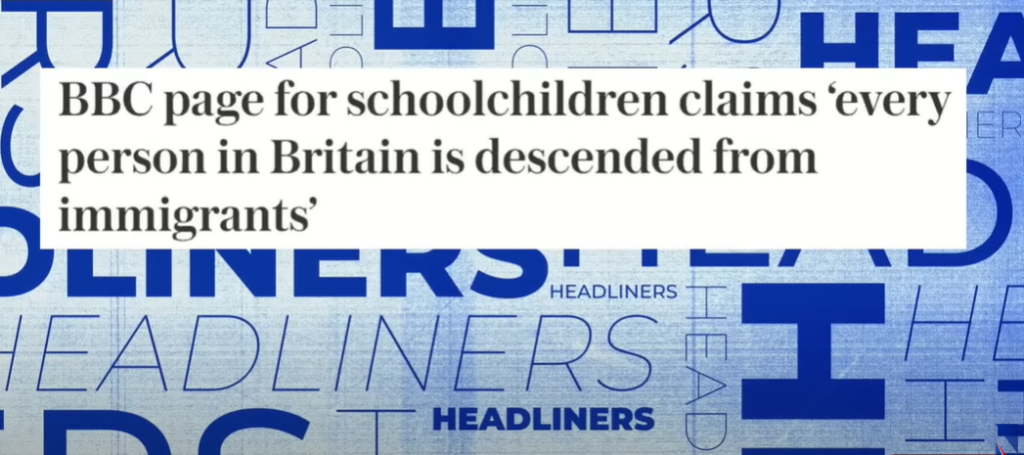
In a recent development, the BBC One network has come under fire for its portrayal of British history, sparking a heated debate surrounding immigration and indigenous rights. Critics argue that the broadcaster’s revision guide, intended for school children, promotes politically correct clichés by claiming that every person in Britain is descended from immigrants.
The controversial statement made by the BBC has faced strong opposition, particularly from those who believe it perpetuates the erasure of indigenous people, specifically the white British population. While proponents of the claim defend it as factual, a renowned Cambridge historian, Professor Robert Tomb, challenges the notion. According to Tomb, significant mass immigration with a substantial demographic impact only dates back to the recent past and is entirely unprecedented in British history.

The issue has ignited a clash between those supporting the BBC’s narrative and those calling for a more nuanced understanding of Britain’s history. Critics argue that although migration is an integral part of human history, recent immigration may not have had the same transformative effect as claimed by the broadcaster. They believe that acknowledging the complexity of historical immigration patterns is crucial to accurately representing the nation’s heritage.
It is worth noting that migration and settlement have occurred throughout human civilization, and various tribes, communities, and civilizations have migrated across the globe over the course of centuries. From the indigenous Americans to the Inuit, everyone, in a broader sense, can be considered immigrants when viewed through the lens of humanity’s history.
While the BBC’s intentions may have been to shed light on the multicultural fabric of Britain, critics argue that the broadcaster’s left-leaning and liberal leanings may have influenced their approach. It is essential to distinguish between historical immigration and more recent waves, as the impacts and circumstances differ significantly.
As the debate rages on, it is evident that there is a need for a more nuanced and inclusive understanding of Britain’s rich history. Recognizing the contributions and experiences of both immigrants and indigenous peoples is vital in accurately portraying the nation’s heritage. Understanding the complexities of migration patterns and the diverse origins of the British population can lead to a more inclusive and comprehensive narrative.
In the end, while the BBC’s statement may have triggered this intense discussion, it has highlighted the importance of exploring history from multiple perspectives, appreciating the diversity of experiences, and fostering a more inclusive understanding of immigration and indigenous heritage.




